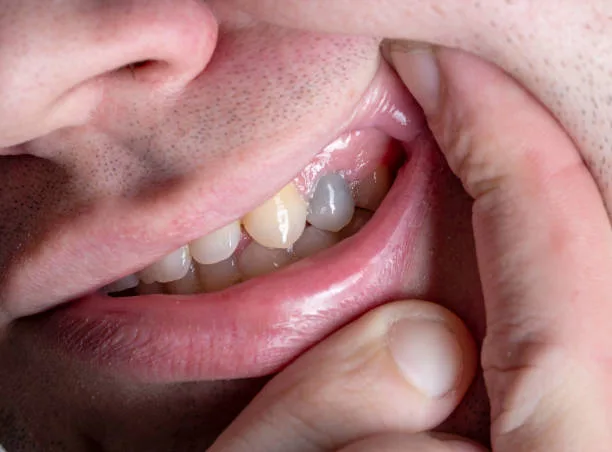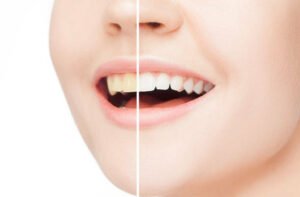Did you know that teeth are living things? They can also die. Tooth death happens due to physical trauma, such as a deep cavity or cracked tooth. Dead teeth can be saved with root canal therapy, but first, let’s understand the anatomy of a tooth.
The visible part of the tooth is the crown, while the base buried in the gums and bone is the root. Each tooth has three basic layers. The outer layer is enamel, and the inner layer around the root is cementum. Inside these layers is dentin. Underneath the dentin lies the pulp, made up of nerves, blood vessels, and other tissue. People often call the pulp the “nerve.” This isn’t quite right, as the nerves and blood vessels are partially in the tooth and partially in the bones and gums through the roots.
The pulp can get harmed if the layers of the teeth crack or rot away. This can lead to infection from liquid pressure, gases, pus, or invading germs. This results in swelling and a lot of pain, signaling the death of your tooth.
Can a Dentist Pull a Tooth That Is Broken Off at the Gum Line?
How Long Can a Dead Tooth Stay in Your Mouth?
Dead teeth are called so because there is no more blood flowing to them, hence they cannot sustain life. You may hear terms like “non-vital tooth” or “necrotic pulp.”
Once a tooth dies, it’s only a matter of time before it falls out on its own. However, letting this happen isn’t wise. It can harm your other teeth and jaw and can be quite dangerous. Depending on the type and extent of the damage, it may be days, weeks, months, or even years before the tooth falls out. This doesn’t mean you should wait for it to happen. It’s best to see your dentist as soon as possible after noticing the death of your tooth.
Signs of a Dead Tooth
You can’t always tell if a tooth is dead just by looking at it. It’s always better to get a dentist to give you a proper diagnosis. But, here are some signs to watch out for:
Discomfort or Pain: Pain often means that the pulp is infected or the tooth nerve is dying. Many people think that once the nerve is dead, you won’t feel anything. This is not true. The pain comes from nerve endings on the tooth’s exterior, known as the periodontal membrane.
Tooth Discoloration: If your teeth are changing colour or getting darker, this is a sign. Healthy teeth should be a shade of white. Depending on your daily habits, your teeth may be whiter or more yellowish. Coffee, red wine, smoke, and certain foods can darken your teeth. A dying tooth will appear different from your other teeth, shifting more towards yellow, grey, light brown, or even black.
What Happens if You Leave a Dead Tooth In?
Leaving a dead tooth in your mouth can cause further complications. The infection can spread to other teeth and gums. Some immediate effects include a marred appearance and foul breath. When a tooth is dead, it’s usually very visible. If it’s one of the teeth in the forefront of your smile, it can be very distracting and unpleasant to look at, especially if it’s black. And nobody likes speaking to someone whose breath smells bad.
How to Treat a Dead Tooth
Root Canal Therapy: This is a painless procedure with a few simple steps. First, you get a local anaesthetic to numb the area. Next, the dentist creates an opening to access the pulp area. The pulp is then removed, and the canals are cleaned out to prepare the space for the filling. After that, the filling is placed, and the process is done.
Tooth Extraction: If the tooth is too damaged to save, it will need to be removed. This can be a simple extraction if the tooth is loose and easily accessible. If not, it may require a surgical extraction, which involves making an incision at the tooth’s connective tissues. After the extraction, a bridge, denture, or dental implant can replace the missing tooth.
What Happens If You Can’t Afford Dental Treatment in the UK?
Prevention Tips for Avoiding Dead Teeth
Maintain Good Oral Hygiene: Brush your teeth twice daily and floss at least once a day. These practices help keep your teeth and gums clean and avoid the risk of cavities.
Commit to a Healthy Lifestyle: Have a balanced diet to prevent oral health issues. Avoid sugary foods and drinks that can lead to tooth decay. Regular exercise promotes blood circulation, which is good for your teeth.
Use Mouthguards: If you play contact sports, protect your teeth from trauma by wearing mouthguards.
Regular Dental Check-ups: Visit your dentist at least twice a year. A dentist can spot any dental problems early before they worsen and provide guidance to keep your teeth healthy and alive.
Schedule a Consultation
If you notice signs of a dead tooth, don’t wait. Contact your NHS dentist in Aberdeen promptly. They can provide expert care to ensure your oral health is in the best condition. With proper treatment, you can prevent further complications and maintain a healthy smile.







